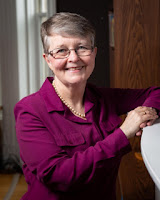Calvin G. Seerveld, 2014
John H. Kok, series editor
Find it on: Dordt University Press (or to Canadian personal addresses via Tuppence by special arrangement)
A 6-book series of collected "sundry writings and occasional lectures" from Cal on a number of topics such as aesthetics, art history, cultural studies, and biblical studies:
Normative AestheticsDiscussion of human imaginativity, of ordinary aesthetic life including humour, style, clothes, games and leisure, with ideas about the need for imaginative grit and giving away artistry in love to one’s neighbours.
Redemptive Art in Society
On the necessity of whimsical redemptive public artistry, especially in cities, with an extended celebration of practising theatre as a christian vocation.
Cultural Problems in Western Society
An assessment of how “tolerance,” xenophilia, and imaginative reenchantment of the European tradition can challenge artists today who want to make a living from their art in our post-christian Western society.
Art History Revisited
Schema for a cartographic methodology for doing art history, demonstrated with critique of the art of Watteau, Hogarth, Mengs, Peter S. Smith and Gerald Folkerts. Also, the genius of Vollenhoven’s philosophical historiography, with notes on art critic Kurt Badt’s use of Heidegger’s aesthetics.
Cultural Education & History Writing
A rationale for Christian college education, for learning foreign languages, with reflections on keeping history and writing history down truthfully.
Biblical Studies & Wisdom for Living
Biblical studies on psalms, on how to read Proverbs, on human corporeality, pleasure, becoming elderly, with songs on the weather, friendship, and married love.












